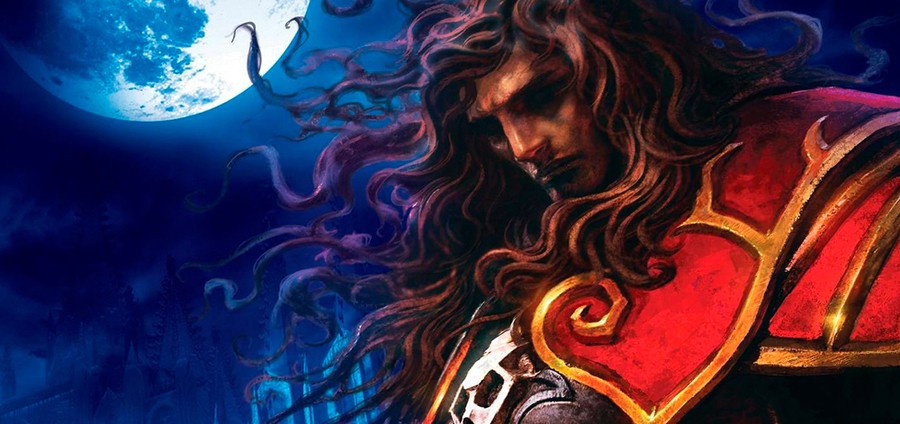
Konami’s Castlevania series may have established its reputation on Nintendo consoles, but in recent years it has branched out to find commercial and critical success on other systems, most notably the PlayStation line of consoles. With Castlevania: Lords of Shadow 2 looming ominously on the horizon, we thought it was the perfect time to take a look back at the franchise’s Sony heritage, so grab your whip and cloves of garlic, because this could get messy.
Castlevania: Symphony of the Night (PlayStation, 1997)
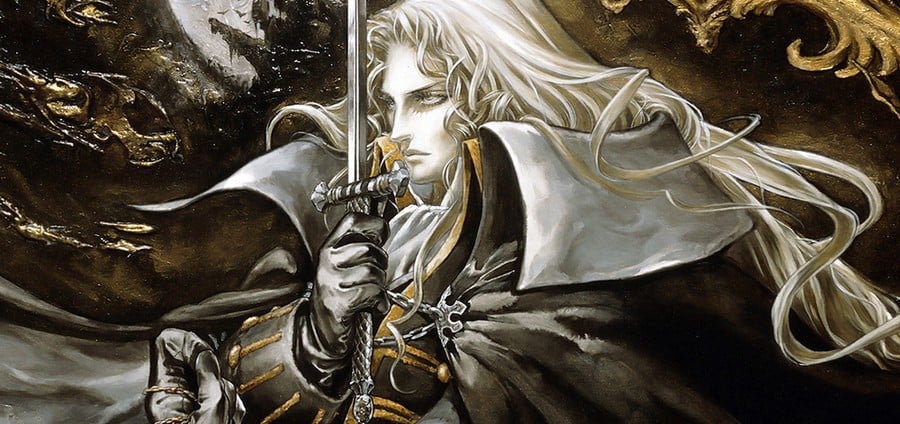
For many, this is the definitive entry in the entire Castlevania series. It took the trademark 2D visuals and moved them from a linear level-by-level progression format, borrowing Super Metroid’s vast, interconnected game world and spawning the term “Metroidvania” in the process. That wasn't the only twist - instead of controlling a member of the vampire-slaying Belmont clan, the player assumed the role of Dracula’s estranged offspring Alucard, who previously cropped up as a playable character in Castlevania III: Dracula’s Curse on the NES.
The final change was the savvy introduction of RPG elements such as equipment, experience points, and items to collect. All of these fresh features created a heady brew which effectively rebooted the franchise for an entirely new generation; although it struggled commercially in Europe, the game was a massive success Stateside and in its native Japan. Aided by the lush artwork of Ayami Kojima and the catchy soundtrack of Michiru Yamane, Symphony is very much the complete package and is seen by many fans as the absolute pinnacle of the entire lineage.
If you’re not brave enough to stump up the eye-watering amount of cash for the second hand PAL edition of the game (copies regularly change hands for in excess of £100) then you could try the cheaper NTSC versions, or alternatively download the game on PlayStation Network. It’s also available as part of the Castlevania: The Dracula X Chronicles on the PSP, which we’ll be coming to a bit later on.
Castlevania: Chronicles (PlayStation, 2001)
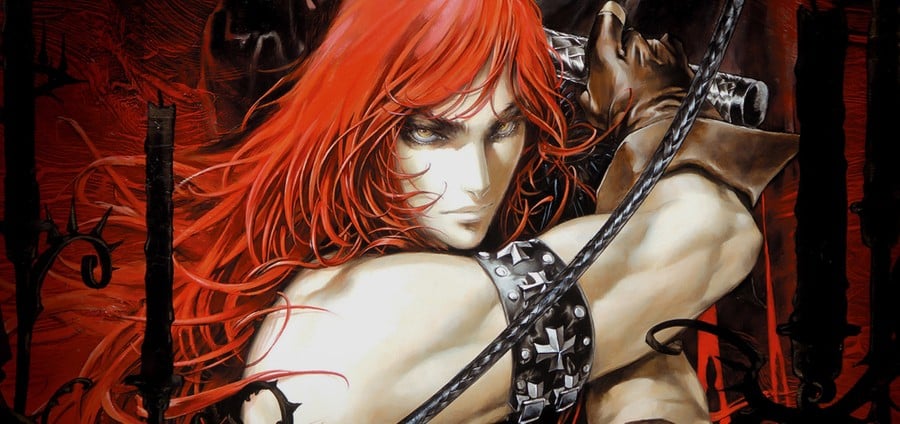
Although the Sharp X68000 has always remained relatively unknown outside of Japan, it played host to several high-profile games, including Konami’s Akumajou Dracula - essentially a remake of the first game in the series. The X68000 version was subsequently ported to the PlayStation, benefiting from enhanced visuals and sound in the process. Ayami Kojima - fresh from her success on Symphony of the Night - was drafted in to do illustrations for the game, and elements such as an improved soundtrack and CGI sequences were also added.
Possibly the most significant feature of this updated port is the introduction of a slightly less punishing difficulty level. The X68000 is almost sadistic in its challenge - even by Castlevania’s brutal standards - and the graded difficulty settings make a massive difference here. Even so, it feels as if Konami missed a golden opportunity with this title; essentially a very straight conversion of an already ageing release, Castlevania: Chronicles lacks the universal appeal of Symphony of the Night. It’s worth seeking out if you’re a hardcore devotee of the franchise, but isn't going to be to everyone’s tastes.
Castlevania: Lament of Innocence (PlayStation 2, 2003)
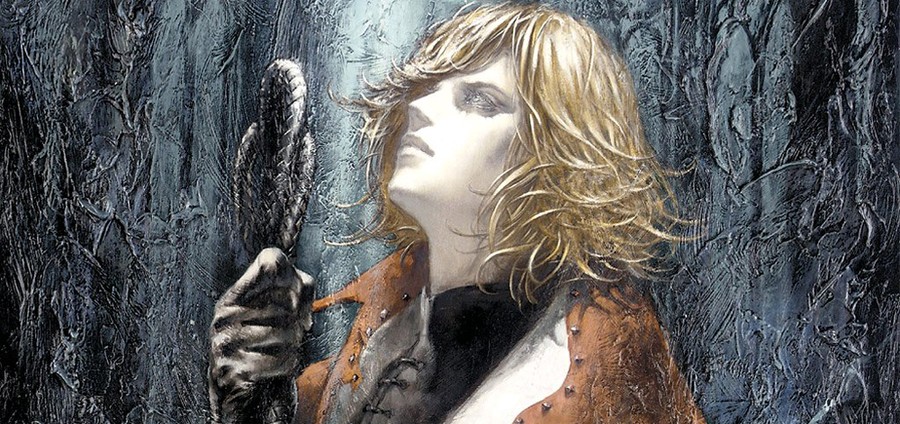
After the abortive adventures on the Nintendo 64 and the merciful development death of the Dreamcast-based Castlevania Resurrection, Konami faced increased resistance from the Castlevania faithful when it came to bringing the series into the realm of 3D. Enthusiastic fans asserted that the Belmonts and Dracula belonged in 2D; the overwhelming success of Symphony of the Night and more recent Metroidvania titles on the Game Boy Advance were all the proof they needed of this fact.
Undeterred, Konami pressed on and released Lament of Innocence (called plain old Castlevania in Europe) on the PlayStation 2 in 2003. Released at a time when Capcom’s Devil May Cry was effectively revolutionising the third-person action genre, Lament of Innocence predictably borrows some elements - including an interesting combo system. However, it also does away with many of the core RPG features which made Symphony of the Night such a success; while there’s a sense of progression in the game, it never feels like there’s all that much depth. Exploration - something which could potentially have made the game’s massive, repetitive environments a little more bearable - is also practically non-existent, as there are few items to collect or equipment to discover.
While it doesn't reach the same heights as the best entries in the series, Lament of Innocence is still an enjoyable - if somewhat brain-dead - action title. The soundtrack is also fantastic, once again composed by the legendary Michiru Yamane.
Castlevania: Curse of Darkness (PlayStation 2, 2005)
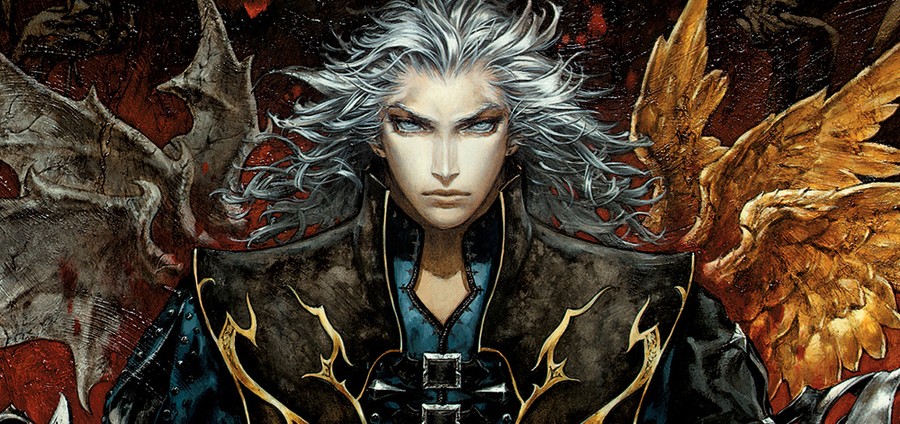
Curse of Darkness was Konami’s chance to make up for the shortcomings of Lament of Innocence and restore some faith in the series. Amazingly, it failed to do either of those things, although in hindsight it’s not quite the disaster that some people would have you believe.
In a break from convention, you’re not controlling a Belmont but a Devil Forgemaster by the name of Isaac. He bears more than a passing resemblance to fan-favourite Alucard, with his flowing snow-white hair and lithe physique, but he’s a brand new character. The storyline is set during the same time as Castlevania III: Dracula’s Curse, but aside from featuring Trevor Belmont, very little is made of the setting - a real disappointment, especially if you’re a lover of the highly-esteemed NES game.
However, that’s not the biggest failing of the game - a more pressing concern is the fact that Curse of Darkness falls into the same trap that Lament of Innocence did - its levels are boring and featureless and seem to go on forever. The only thing that maintains your interest is the tight combat system and sheer volume of enemies to destroy; Curse of Darkness comes very close to showcasing the same variety of design that made Symphony of the Night such a joy to behold.
Although it has plenty of faults, Curse of Darkness is still worth picking up if you still have a PS2 knocking around and fancy some Castlevania action. If you were one of the people who really liked Lament of Innocence then this will almost certainly provide the same level of entertainment.
Castlevania: The Dracula X Chronicles (PlayStation Portable, 2007)
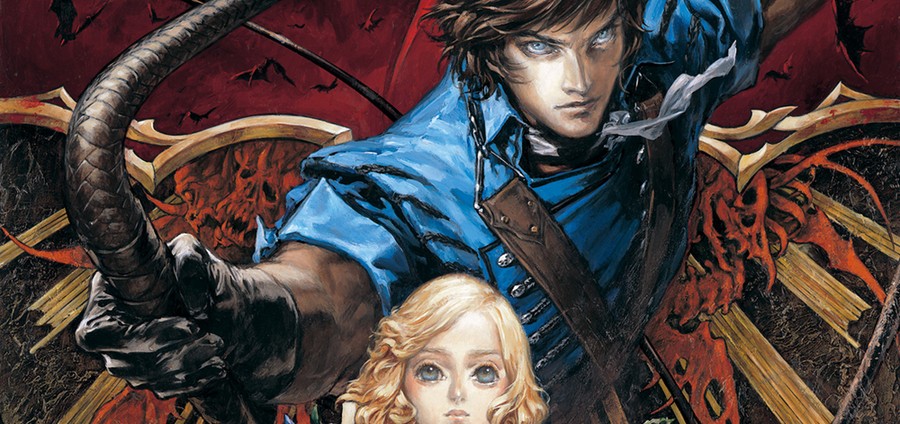
In a continuation of the concept behind Castlevania Chronicles, Konami set out to update the PC Engine classic Dracula X: Rondo of Blood with this PlayStation Portable effort. The original game was remade in 2.5D, with fresh character designs (by Ayami Kojima, naturally) but largely the same basic gameplay. To sweeten the deal, Konami added in the original version of Rondo as well as Symphony of the Night, making this a dream ticket for fans of the series.
It's not an entirely perfect package by any means - the emulated versions of both Rondo and Symphony of the Night are a little rough around the edges, for example - but having all of them in once place is more than enough reason to overlook this issue.
Castlevania: Harmony of Despair (PlayStation Network, 2010)
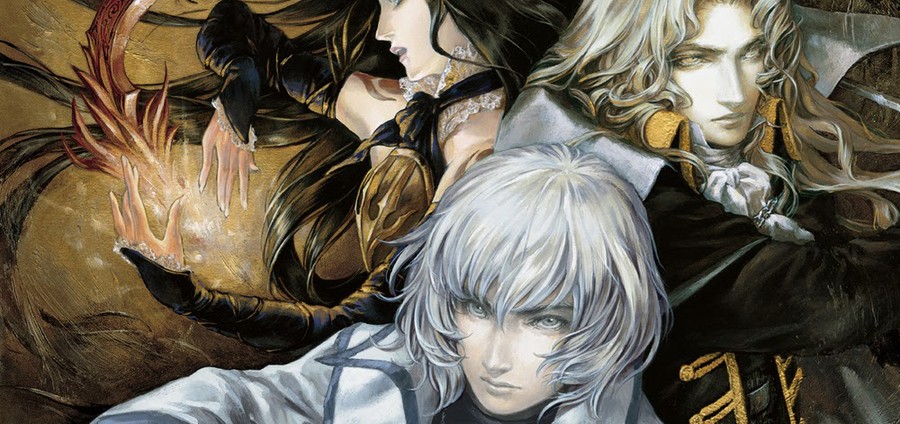
On paper, this downloadable release should be the perfect companion piece to the 2D Castlevania classics of old; it cherry-picks the best heroes from the history of the franchise and sends them on a multiplayer-focused slog through various locations, battling enemies taken from a wide range of games in the lineage. Sadly, it never manages to live up to its promise.
When playing alone the game is almost impossible, and with other players it rarely becomes as exciting as you'd think. It's almost as if the developers arbitrarily decided that they were going to do an online, multiplayer Castlevania without any notion of how they could make it work properly. Castlevania: Harmony of Despair has none of the magic of the Metroidvania entries, and ends up being a product which frustrates rather than entertains. At the time of writing, it's the last contribution that Koji ‘IGA’ Igarashi - producer of the franchise up until the release of Castlevania: Lords of Shadow - has made to the series he did so much to revive. It's not the kind of send-off anyone would hope for.
Castlevania: Lords of Shadow (PlayStation 3, 2010)
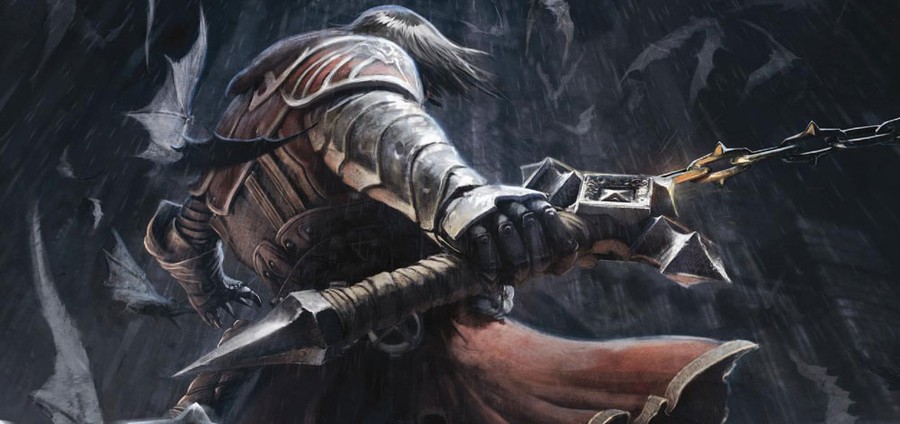
Following from the lukewarm reception afforded to Curse of Darkness, Castlevania needed something a little different for its next instalment. That would come in the shape of Castlevania: Lords of Shadow, which was developed by Spanish studio MercurySteam. Konami apparently had several teams developing competing prototype concepts, and MercurySteam’s was dangerously close to being cancelled until Hideo Kojima - he of Metal Gear fame - saw the game in action and became an enthusiastic supporter.
Lords of Shadow is a reboot rather than a proper sequel, and in that regard its plays hard and fast with the rules of the franchise. The lead character is still a Belmont, but the in-game action has more in common with the likes of God of War than traditional Castlevania. The iconic whip is replaced by a device which is destined to become just as famous - the surprisingly adaptable ‘Combat Cross’, which allows you to grapple onto objects and tame wild beasts.
With its stunning visuals, gorgeous musical score, and frenetic gameplay, Lords of Shadow overcame criticism that it “wasn’t really Castlevania” and went on to become one of the best-selling entries in the entire lineage.
Castlevania: Lords of Shadow 2 (PlayStation 3, 2013)

The critical and commercial success of Lords of Shadow has set the scene for a sequel, Lords of Shadow 2, which is due for release next year. Interestingly, producer Dave Cox has stated that after this release, MercurySteam will walk away from the franchise, which begs the question: what does the future hold for one of Konami’s most enduring intellectual properties? Could former series head Koji ‘IGA’ Igarashi make a triumphant return, or will Kojima Productions once again become involved? Let us know your hopes (and fears) by leaving a comment below.





Comments 9
It's a shame how ugly have become Castlevania nowdays. I miss Ayami Kojima art style and fast paced 2D gameplay... And my heart is crying when I think how cool could be full scale 2D Castlevania on PS3 =)))...Life sucks =((((....Also I liked Lament of Innoecens so muh better than Lord of Shadows... eh.... Life sucks.... and full of dissapointment.
As it is obvious Castlevania is one of my favourite game series! From the games listed above Symphony of the Night is one of my favourites and I liked the PSP port too.
@Gemuarto I really liked Lord of Shadows more than I was expecting. I agree that it perhaps doesn't "feel" like a Castlevania game, but it's still really fun. I'm looking forward to the sequel.
"Kinda reminds me of..."
http://cinemassacre.com/2009/10/08/castlevania-part-1/
We're never gonna see the battle of 1999. Unless IGA returns, Castlevania is dead to me.
@TNLGUY Are you referring to Julius?
I enjoyed Castlevania: Lords of Shadow but this was clearly not a Castevania game. A proper title would be God of War: Lords of Shadow. The storyline was, for me, sort of bad but it is a personal matter, LoS is a very good action title.
I would like a Metroidvania or a more classic Castlevania title on any modern console but it seems unlikely since the 3DS version of LoS will be action based.
SotN and Dracula X may be may personal favourite Playstaion Castlevania games but I liked the origin of Belmont in Lament of Innocence more of the somewhat stupid that I saw in Lords of Shadow.
Overall one other Castlevania game I like (and is my personal favourite) ia Aria of Sorrow due to characters, storytelling and setting.
I have the original PAL version of SotN. I did not know that it was so expensive!
@belmont Yeah, Aria of Sorrow was superb =)))...Nearly perfect =) LoS is solid GoW clone, but framrate on PS3 was terrible... and I am very sensetive to framerate =). But hell why they can't make single player 2D Castelvania on PS3... Symphony of the Night 2, for example =)))
@Damien McFerran About Castlevania: Curse of Darkness "you’re not controlling a Belmont but a Devil Forgemaster by the name of Isaac." this is wrong Isaac was your main rival in the game you played some one called Hector (He's who is in the photo you have used as-well). lol its my favrot Castelvania game aside from Dawn of Soul's (DS)
http://images.wikia.com/castlevania/images/2/2d/Cod_offart56.jpg that's Isaac
http://images.wikia.com/castlevania/images/a/a0/Castlevania_CoD_Hector.jpg and thats hector the person you play as in the main story
Leave A Comment
Hold on there, you need to login to post a comment...